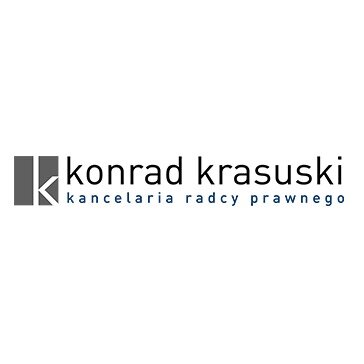
Law Office Wroclaw ZKZ
Bielany Wroclawskie, Poland
ZKZ WROCŁAW LAW OFFICE
Home > ZKZ Wrocław Law Firm
Kancelaria Prawna ZKZ is one of the leading Wrocław law firms of legal advisers and attorneys specializing in commercial law.
Welcome to the website of ZKZ Law Firm!
We invite you to familiarize yourself with our offer. We specialize in providing legal services to companies, in particular establishing and ongoing service of companies, debt collection, issuing opinions and drafting contracts, legal representation before common and administrative courts and public authorities.
We provide services related to legal support for cross-border economic transactions. We help in expansion to foreign markets, as well as in investments of foreign entrepreneurs in Poland.
We also provide services to companies from various sectors of the economy. This applies in particular to business entities in the mining, agricultural and transport sectors.
Free • Anonymous • Expert Lawyers
Need Personal Legal Help?
Connect with experienced lawyers in your area for personalized advice on your specific situation.
No obligation to hire. 100% free service.
Practice areas
Why companies:
An enterprise run in the form of a commercial law company brings many benefits, among which the following should be mentioned: limitation or complete exclusion of liability with the entrepreneur's personal property, tax optimization, freedom to change the composition of the enterprise, facilitating the management of expanding enterprise structures
Types of companies:
Polish law provides for the existence of the following types of companies:
- general partnership,
- a partnership,
- limited partnership,
- partnership Limited by shares,
- limited liability company,
- joint-stock company.
Depending on the needs of the client and his economic situation, the most appropriate legal form for his enterprise is selected.
Establishment of companies:
Despite the promises of successive governments, setting up a company in Poland is still a complicated process, which is why it is worth entrusting it to the ZKZ Law Firm. As part of the company formation service, the client receives:
- analysis of your situation and selection of appropriate tools,
- drawing up a draft articles of association (or articles of association),
- registration of the company in the National Court Register, the Central Statistical Office and the Tax Office.
Transformations of companies:
The development of existing enterprises often requires reconstruction of their structures, including transformations within the meaning of commercial law. Depending on the client's needs, you can transform:
- a civil law partnership into any commercial law company,
- a partnership of one type into a partnership of another type or a capital company,
- a capital company of one type into a capital company of another type or a partnership.
The company transformation service includes the preparation of all necessary documents and the registration of the transformed company in the relevant courts, registers and offices.
Merger and division of companies:
Mergers and acquisitions are an inseparable element of the economic reality, the legal consequence of which is the need to formally merge or divide commercial law companies. Thanks to cooperation with statutory auditors and tax advisors, Kancelaria Prawna ZKZ can offer advice and representation at every stage of the process of merging and dividing companies.
1
Company formation
2
Ongoing legal services for companies
3
Transformations of companies
4
Merger and division of companies
Labor law is a very extensive branch of law. Its sources, in addition to the Labor Code, include a number of laws and detailed regulations concerning, among others, trade unions, the National Labor Inspectorate, promotion of employment, social security and social benefits related to work, occupational health and safety and many other matters. The best guides helping entrepreneurs navigate this maze of regulations are lawyers from the ZKZ Law Firm specializing in individual and collective labor law.
Individual labor law is a set of rules governing a single employment relationship (between an employer and a specific employee). Individual labor law applies in particular to issues related to the establishment and termination of an employment relationship and the content of the employment relationship, protection of the employee's personal rights, remuneration for work, the right to rest and facilitating the improvement of professional qualifications for employees.
Collective labor law was developed primarily to improve the position of employees (by nature, in a weaker economic position than the employer). The basic principle of collective labor law is the right of free association of employees (but also employers). The main legal institution of collective labor law are collective labor agreements, under which employees are granted social rights and privileges that go beyond the minimum standards provided for by law.
The scope of labor law also includes a number of public law regulations, the purpose of which is to ensure the maximum safety standard for employees at work and to protect individual groups of employees (in particular people with disabilities, women, people in the pre-retirement age), as well as to implement state policy objectives such as combating unemployment (regulations on activation of the unemployed, organization of poviat employment offices, etc. serve this purpose).
The offer of ZKZ Law Firm in the field of labor law includes:
- developing templates of employment contracts and managerial contracts,
- developing work regulations, remuneration regulations, safety instructions and other documents required by law,
- advice on negotiating, concluding, implementing and terminating collective agreements and other agreements between employers and employees,
- negotiations with trade unions and conducting collective disputes,
- advising on employment restructuring, including group redundancies,
- advising on takeovers of workplaces pursuant to Art. 231 of the Labor Code
- advising on the employment of foreigners,
- advice on recording working time, overtime and holidays,
- conducting proceedings before the National Labor Inspectorate,
- conducting proceedings before the Social Insurance Institution (including in connection with accidents at work),
- conducting court proceedings in the field of labor law,
- counteracting claims related to discrimination in the workplace and mobbing,
- comprehensive audits regarding compliance with labor law,
- advising on contracts with persons in managerial positions, managerial contracts and civil law contracts.
The basic premise which obliges the entrepreneur to file a bankruptcy petition with the court is insolvency. Pursuant to the provisions of the Act, a debtor is considered insolvent if it fails to meet its due pecuniary obligations. A debtor who is a legal person or an organizational unit without legal personality, which a separate act grants legal capacity, is also considered insolvent when its liabilities exceed the value of its assets, even when it performs these obligations on an ongoing basis.
A bankruptcy petition may be filed by the debtor or any of its creditors. The application may also be submitted by: 1) in relation to a general partnership, professional partnership, limited partnership and limited joint-stock partnership - each of the partners liable without limitation for the obligations of the company; 2) in relation to legal persons and organizational units without legal personality, to which a separate act grants legal capacity - anyone who has the right to represent them alone or jointly with other persons; 3) in relation to a state-owned enterprise - also the founding body; in relation to a company wholly owned by the State Treasury - also the minister responsible for the State Treasury; 5) in relation to a legal person, general partnership, professional partnership and limited partnership and limited joint-stock partnership, being in liquidation - each of the liquidators; 6) in relation to a legal person entered in the National Court Register - a curator established on the basis of art. 26 sec. 1 of the Act on the National Court Register; 7) in relation to the debtor who has been granted public aid with a value exceeding EUR 100,000 - the authority granting the aid.
If it is probable that by way of an arrangement the creditors will be satisfied to a greater extent than they would be satisfied after bankruptcy proceedings involving the liquidation of the debtor's assets, the debtor is declared bankrupt with the possibility of an arrangement.
An entrepreneur who feels threatened with insolvency may initiate reorganization proceedings during which, under court supervision, he enjoys protection against creditors. The purpose of reorganization proceedings is to restore the entrepreneur's ability to compete on the market.
Consumer bankruptcy is a relatively new institution in Polish law, introduced in 2009 under the amended Bankruptcy and Reorganization Law. Pursuant to the regulations, bankruptcy may be declared for a natural person who does not conduct business activity, if his insolvency resulted from exceptional circumstances beyond his control.
The offer of the ZKZ Law Firm in the field of bankruptcy and reorganization law includes:
- preparation of bankruptcy applications,
- reporting claims,
- preparation of arrangement proposals,
- contact with the temporary court supervisor, trustee and judge-commissioner,
- control of the correctness of the trustee's actions, including the correctness of the liquidation plan,
- advising on international (cross-border) insolvency proceedings,
- preventive advice for enterprises at risk of insolvency, including the development of debt restructuring plans,
- advice on consumer bankruptcy.
Insurance law is the totality of legal norms regulating the rights and obligations of the parties to insurance relations, as well as the organization and operating principles of insurance companies and institutions regulating the insurance services market.
The basic legal acts that make up the insurance law in Poland include, apart from the Civil Code, the Act of 22 May 2003 on insurance activity, the Act of 22 May 2003 on compulsory insurance, the Insurance Guarantee Fund and the Polish Motor Insurers' Bureau , the Act of 22 May 2003 on insurance and pension supervision and the Insurance Ombudsman and the Act of 22 May 2003 on insurance mediation.
Pursuant to the Civil Code, through an insurance contract, the insurer undertakes, within the scope of its business, to provide a specific benefit in the event of the occurrence of an accident provided for in the contract, and the policyholder undertakes to pay the premium. The insurer's service consists in particular in the payment of: 1) in the case of property insurance - specific compensation for damage caused as a result of the accident provided for in the contract; 2) in the case of personal insurance - the agreed sum of money, disability pension or other benefit in the event of an accident provided for in the contract in the life of the insured person.
Under the law, and in accordance with common practice, insurance is divided into two main types: property insurance and personal insurance. The subject of property insurance may be any property interest that is not contrary to the law and can be assessed in money. Personal insurance may, in particular, cover the death of the insured person or his or her survival to a specified age, bodily injury or health disorder.
Thanks to extensive experience in the field of insurance law, Kancelaria Prawna ZKZ can offer its clients a wide range of services, which include:
- advice on concluding insurance contracts,
- advising entities covered by the obligation to conclude civil liability insurance contracts,
- drafting and giving opinions on general terms and conditions of insurance,
- comprehensive handling of compensation cases at the pre-trial and trial stages (including representation before courts of all instances),
- seeking compensation from the Insurance Guarantee Fund in the event of the inability to determine the perpetrator of the event causing the damage,
- drawing up complaints about the activities of insurers to the Insurance Ombudsman and the Polish Financial Supervision Authority,
- advising entities conducting insurance activity,
- advising entities conducting agency activity for insurers.
Subject of copyright:
The subject of copyright is any manifestation of creative activity of an individual nature, established in any form, regardless of the value, purpose and manner of expression (work). Only the expression may be protected. Discoveries, ideas, procedures, methods and principles of operation and mathematical concepts are not protected. The work is subject to copyright from the moment it is established, even if it has an unfinished form. The creator is entitled to protection regardless of the fulfillment of any formalities.
The development of someone else's work, in particular translation, alteration, adaptation, is subject to copyright without prejudice to the right to the original work. The disposal and use of the elaboration depends on the permission of the author of the original work (dependent right), unless the economic copyrights to the original work have expired.
Copyright entity:
Copyright belongs to the creator. It is presumed that the author is the person whose name was shown as such on copies of the work or whose authorship was made public in any other way in connection with the dissemination of the work. The co-authors hold the copyright jointly. The size of the shares is presumed to be equal. Each of the co-authors may demand that the court determine the size of the shares, based on the contribution of creative work.
Unless the law or the employment contract provides otherwise, the employer whose employee created the work as a result of the performance of duties under the employment relationship acquires, upon acceptance of the work, copyrights within the limits resulting from the purpose of the employment contract and the consistent intention of the parties. Unless otherwise provided in the employment contract, the scientific institution shall have priority in publishing the scientific work of the employee who created the work as a result of performing duties under the employment relationship. The creator is entitled to remuneration.
Copyrights:
Moral copyrights protect the author's relationship with the work, unlimited in time and not subject to waiver or transfer, in particular the right to:
1) authorship of the work;
2) mark the work with your name or pseudonym or make it available anonymously;
3) inviolability of the content and form of the work and its fair use;
4) decide on the first release of the work to the public;
5) supervision over the use of the work.
Copyrights:
Unless the Act provides otherwise, the author has the exclusive right to use and dispose of the work in all fields of exploitation and to remuneration for the use of the work.
Separate fields of exploitation are in particular:
1) in the scope of recording and multiplying the work - production of copies of the work using a specific technique, including printing, reprographic, magnetic recording and digital technique;
2) in the scope of trading in the original or copies on which the work has been fixed - placing on the market, lending or rental of the original or copies;
3) in the scope of dissemination of the work in a different way - public performance, exhibition, display, reproduction, broadcasting and re-broadcasting, as well as making the work available to the public in such a way that everyone can have access to it at a place and time of their choice.
Radio and television organizations may broadcast published minor musical, verbal and verbal-musical works only on the basis of an agreement concluded with an organization for the collective management of copyright.
Permitted use of protected works:
Without the consent of the author, it is allowed to use the already disseminated work free of charge for personal use. The scope of own personal use includes the use of single copies of works by a circle of people remaining in a personal relationship, in particular kinship, affinity or social relationship.
Scientific and educational institutions may, for didactic purposes or to conduct their own research, use disseminated works in the original and in translation, and prepare copies of fragments of a disseminated work for this purpose.
Copyright Duration:
Moral rights are unlimited in time.
When it comes to proprietary copyrights, they generally expire after seventy years:
1) from the death of the author, and for co-author works - from the death of the co-author who outlived the others;
2) in relation to a work whose author is unknown - from the date of first dissemination, unless the pseudonym leaves no doubt as to the identity of the author or if the author has revealed his identity;
3) in relation to the work to which the author's economic rights are entitled by law to a person other than the creator - from the date of dissemination of the work, and if the work has not been disseminated - from the date of its determination;
4) in relation to an audiovisual work - from the death of the last person to die: the main director, the author of the script, the author of the dialogues, the composer of the music composed for the audiovisual work.
Need help with a legal matter?
Reach out to our team for expert legal guidance tailored to your situation.





